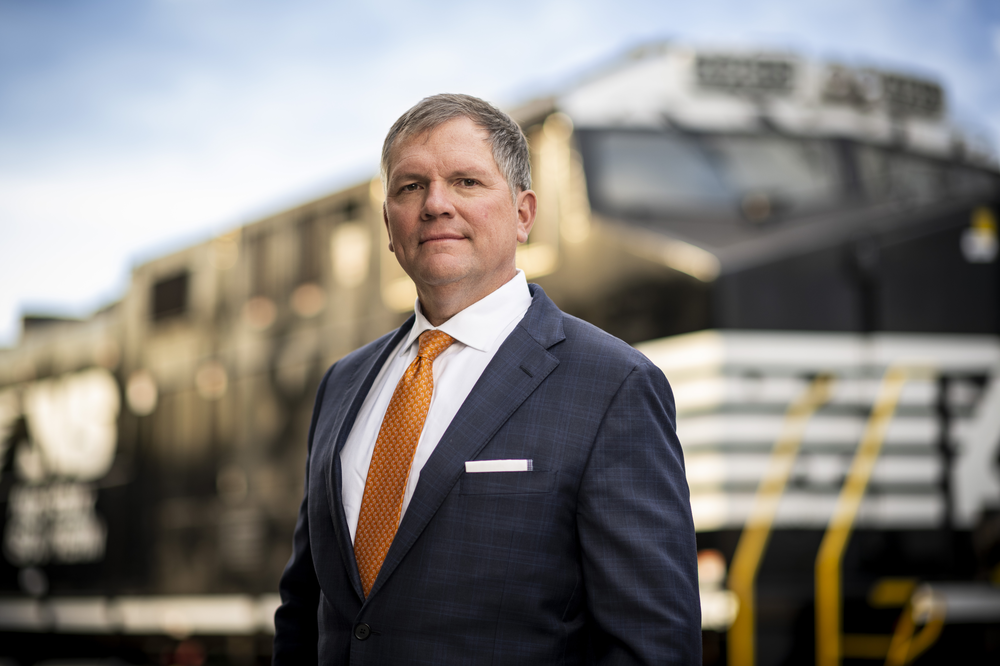
Trains News Wire spoke with Norfolk Southern CEO Alan Shaw after the railroad’s earnings call on Wednesday. Railroad safety has been in the spotlight since the Feb. 3 derailment of a Norfolk Southern train in East Palestine, Ohio, and subsequent hazardous materials release. The wreck has put the entire industry under scrutiny, including the Precision Scheduled Railroading operating model that cut costs and employment levels at three of the big four U.S. railroads. In December, Norfolk Southern announced a new strategy that gets away from excessive cost-cutting and a short-term focus on the operating ratio. Instead, NS aims to build a railroad with the resources required to provide reliable service over the long term. It won’t furlough crews during a downturn so that it can capture volume and maintain service when demand returns. By providing consistent, reliable service year in and year out, NS says shippers will then build more of their supply chains around rail.
Has East Palestine changed the way the industry looks at safety? And if so, how?
We understand the role that we play in the U.S. economy. We take safety very seriously. Me and all my colleagues at the CEO level are always looking to improve. You’ve seen improvements in our safety performance and the industry’s safety performance over time. What I will tell you is that our response to East Palestine has reconfirmed my conviction in the strategic plan we outlined last year. We said we were going to be a customer-centric, operations-driven service organization that focuses on the long term and adheres to our core values and focuses on the best interests of our shareholders, our customers, employees, and the communities we serve. And that’s exactly what we’ve done in our response to East Palestine. I hope that whatever’s written about this years down the road, they’re going to say NS stayed true to form. We did exactly what we said we were going to do: We’re going to make it right and we’re going to be focused on the long term instead of the short term. If we had taken a short-term response to East Palestine it would have been completely different and we’d be in a completely different spot right now.
Union leaders say that East Palestine was the inevitable result of Precision Scheduled Railroading. How do you respond to that?
Since we implemented PSR — and we did it the NS way — last year our derailments were the lowest in the last two decades. We can do better. Last year our employee injury rate was the lowest it’s been in the last decade. We can do better. As you know, on my first day as CEO last year — which seems like eons ago — I was out in the field on a Sunday with my craft colleagues, thanking them for what they do for NS and our customers and the U.S. economy. That’s the importance I place on our craft colleagues. Since I’ve become CEO we’ve been on a hiring spree. I’m investing in our craft colleagues. That was a big piece of our strategic vision that we outlined. We took an industry leading approach and we charted a new course for the industry. We’re going to keep investing in our craft colleagues, investing in our network, and investing in our customers even during economic downturns. I reached out personally to the heads of our two largest labor unions and told them I want them to be part of the solution. I didn’t want to come up with the solution and then dictate it to our craft colleagues. I want their input, I want their help, and I fully intend to move forward with that.
Across the industry, labor has been through PSR-related downsizing over the past few years and the protracted national contract negotiations last year. How is morale among the unionized workforce at NS? And does morale have an impact on service and safety?
We have a better relationship with our craft colleagues than some of the other roads. Some of the things that other roads have done with, say, points-based attendance policies, we don’t do. And our local union leaders recognized that. The protracted labor negotiations, the fact that our craft colleagues worked 24/7 throughout COVID, yes, that has an impact. I understand that our craft colleagues are the foundation of our railroad, and that’s why I’m investing in them. They’re that important to me. I get my energy from being in front of our customers or being out in the field in front of my craft colleagues. Frankly, that’s how I came up with the concept of a customer-centric, operations-driven service organization. As soon as we ended those national negotiations, it was really important to me that we pivoted to quality-of-life issues. And I wanted to do that at the local level for a couple reasons. One is I know that what’s important to my craft colleagues in West Virginia or Ohio or Georgia is probably different from what’s important to craft colleagues out in Oregon or California. I know we have a good relationship with our craft colleagues. And so what you saw us do in mid-December is we reached out via phone and told each one of our local union leaders that we’re willing to sit down with them and talk about important quality of life issues. The progress we’ve made is tremendous. You know, labor negotiations aren’t easy. Usually they’re pretty protracted. That was five months ago and we’ve got paid sick leave agreements with 10 of our 12 unions, and we’re continuing discussions with SMART-TD and the BLET on quality-of-life issues as well. So we’ve made a lot of progress.
Federal Railroad Administration officials have always said that safety is not a partisan issue. Yet East Palestine quickly became a political football. Were you surprised by that, and did it have an impact on NS’ response to the derailment?
I was absolutely very surprised by the misinformation that was out there, the politicization out there. And you saw that AP story about foreign intelligence agencies getting involved on social media and really spinning this up. That was our understanding of this situation as well. Did it change the way we responded? No. The NS supervisors were there within an hour. Our family assistance center was set up within a day. I was there in the immediate aftermath and I pledged to do what’s right. What’s important is that I didn’t go there in the immediate aftermath for a photo op. I went directly to our family assistance center and I went directly to the Red Cross shelter. I told them who I was, and who I represented, and I was talking to the impacted families and people and asked them, “Are we doing everything we can to support you?” That was my primary focus, on helping the community. I’ve been back almost every week since. And I’ve held listening sessions with folks there, usually groups of eight to 10. I’ve visited folks in churches, and in schools, and in their businesses, and in their homes. Their feedback has been, as you’d imagine, emotional. It’s been powerful. One of the things that I heard was that folks really wanted us to remove the impacted soil underneath the track. We already had an environmentally accepted remediation plan in place. But once I got that feedback, and I put it up against our core values and our commitment to making things right, I told my folks to take up the track. Now, that had an impact on our earnings when you go from double main line to single main line on your busiest corridor, with that single main line at restricted track speed. It’s going to have an impact. But it’s the right thing to do. And again I’m guided by that principle of not making decisions on near-term operating margins if it comes at the expense of our longer-term objectives.
In-train forces are nothing new, they’re well understood, and railroads have had train marshaling rules for a long time. Did Norfolk Southern get away from this when it implemented the TOP 21 operating plan, which emphasizes moving the railroad’s traffic on fewer but longer trains?
No, we didn’t move away from this. When I became CEO I refreshed our operating leadership at a number of very key positions, starting with Chief Operating Officer Paul Duncan, who is widely recognized in the industry as one of the best and brightest of the next generation. And I said, “I want you to take a look at safety and service.” And so we started broadly and we looked at how we were building trains and operating trains, and we made adjustments last year. And candidly when that [March 4] Springfield, Ohio, derailment happened, the next morning I talked to Paul and said, “We can’t afford any more. So I want you to get really, really, really conservative on our train build procedures until you can use science and physics and data to look at every train and every line segment.” Which is what we’ve done. That decision is one of the things that’s cost us in the short term. It’s not the new rules. It’s the decision to get really conservative that really created congestion on our network. Now, as Paul and his team have done that, they’re introducing longer trains, they’re reconfiguring the trains, and we’re using more distributed power. Ultimately we’ll be more productive and we’ll have more capacity. But I’ve got to do what’s right. I’ve got to be willing to take a short-term hit to protect our long-term future.
So you clamped down and then once you had the data on a train-by-train and route-by-route basis, you could loosen up because the trains were being built the right way?
That’s exactly right. We did refine some things we were doing, and what we found is we needed to implement more distributed power, which is a good thing. We were heading in that direction anyway. But you’re exactly right: We had an abundance of caution and got really conservative. Ultimately I’ll look back and say that was the right decision. Just like taking up the tracks, we’re going to be better for it.
The safety advisory the FRA issued on train makeup earlier this month said that distributed power reduces in train forces, but it’s not a cure all. Do NS’s new train marshaling rules take that into account?
Yes. Our new rules were put in place before that FRA advisory came out. And when I saw that FRA advisory, I went to Paul [Duncan] and said, “Did they get a hold of our new rules?” because it is exactly what we put in place a week or two beforehand. We’re fully aligned with the FRA and they’re thinking about this exactly the right way. We’re safe. Last year we had the lowest number of derailments in two decades. Most of our FRA safety metrics improved last year compared to the prior year. We’ve improved so far this year on derailments and accident rate as well. We’re doing the right things.
Between the labor negotiations last year and then East Palestine this year, railroads have gone from a stealth industry to one that’s in the headlines a lot. What’s it going to take to go back to stealth mode? And should the industry go back to flying under the radar?
We play a really important role in the U.S. economy. A hundred million people wake up every morning within 50 miles of an NS intermodal terminal. We’ve got a unique franchise: we serve about 60% of the consumption in the U.S., more than half of the manufacturing, and more than half of the automotive production in the U.S. We do a lot of good. And our strategy and our vision for doing good for the communities we serve, doing good for our employees and our customers and our shareholders, is the right vision going forward. It’s the right thing for Norfolk Southern. We’re the best bet for a new type of railroad that’s out there. I’ve got a lot of confidence in our franchise. I’ve got a lot of confidence in our people. And I’ve got a lot of confidence in our customers. And I’m willing to bet on it. Even if that means short-term pain — like the decisions we made in the first quarter because I’m focused on the longer-term horizon — these are the right things to do.
If you go into East Palestine — and I’m there a lot — you see these yard signs popping up. They say “East Palestine, America’s greatest comeback story.” That’s what I want. It really is. We have 13 employees who live in East Palestine. One of them reached out to me by email and he said he lives in East Palestine, I know NS, I know our values, we’re going to do the right things. He’s a union employee who works for us in Conway, Pa. He invited me to his house. I went over for lunch. His wife was there, his 3-year-old daughter, and he invited a bunch of his friends. We had a really powerful conversation about the derailment, its impact on East Palestine, and what NS needed to do to make it right. As he was walking me to my car, I turned to him and said I want to give you a management job. And I want you to report directly to my office. I’m going to initially fund you with a million bucks, and I want you to spend it in East Palestine to help this community recover. He’s doing that. We have 300 people — NS employees and contractors — on the ground every single day, working on the environmental remediation, working on the community assistance, working on investing in the community. I really appreciate them and the sacrifices they’re making and the sacrifices their families are making as well when they’re away. What I find is that when they’re at home, they want to go back. That tells you two things. That tells you they know they’re having a positive impact on the community. And that tells you that folks in East Palestine know that they’re having a positive impact and are giving them that positive reinforcement.
We charted a brand new course for the industry last year. It’s the right thing for NS. I’m not going to comment on any other railroad. It’s the right thing for our unique franchise. We’ve got a franchise built for growth that faces the fastest growing segments of the U.S. economy. We’re going to leverage that. Now more than ever I am convinced that taking that long term approach as a customer-centric, operations driven service organization and sticking true to your core values … that’s the right thing to do and it’s the right thing for us. And that’s how I’m going to continue to lead Norfolk Southern.






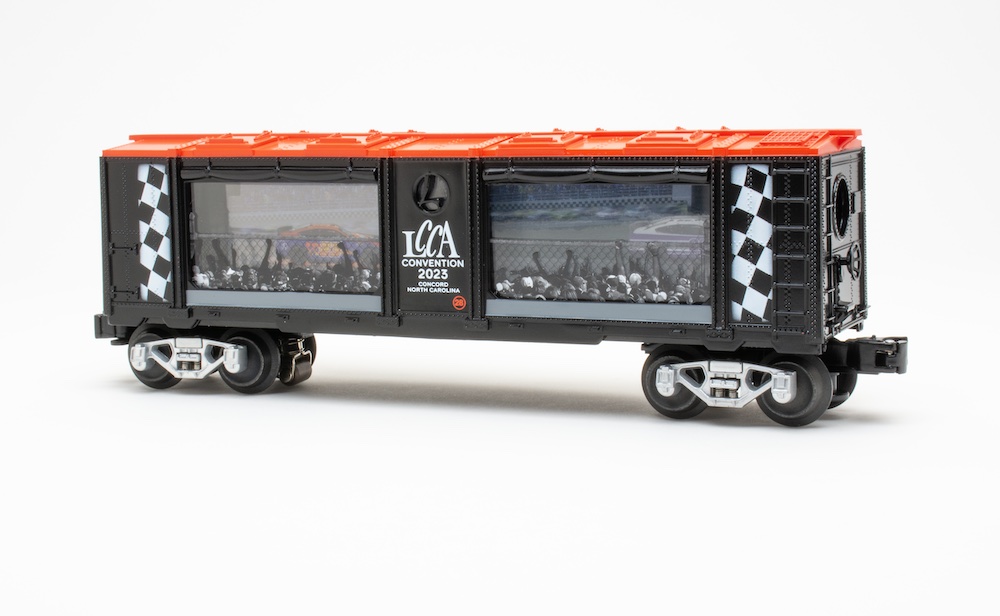
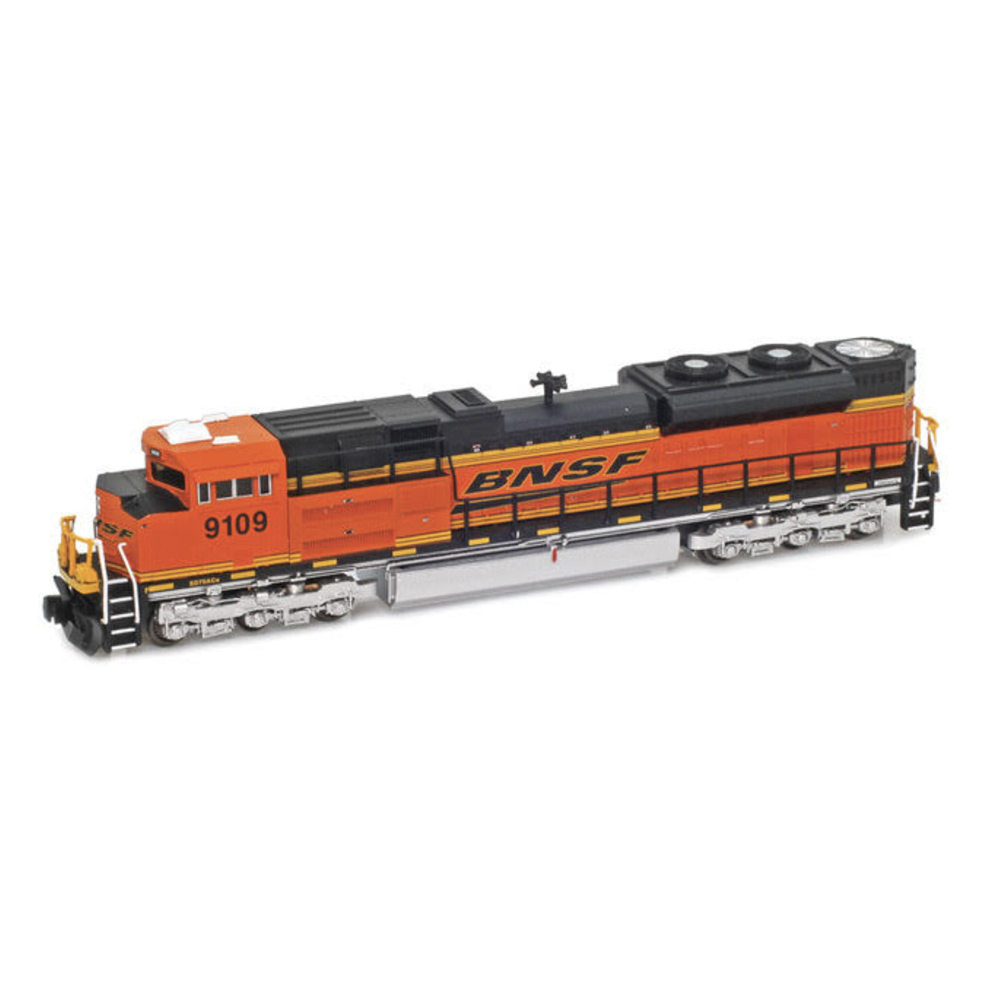
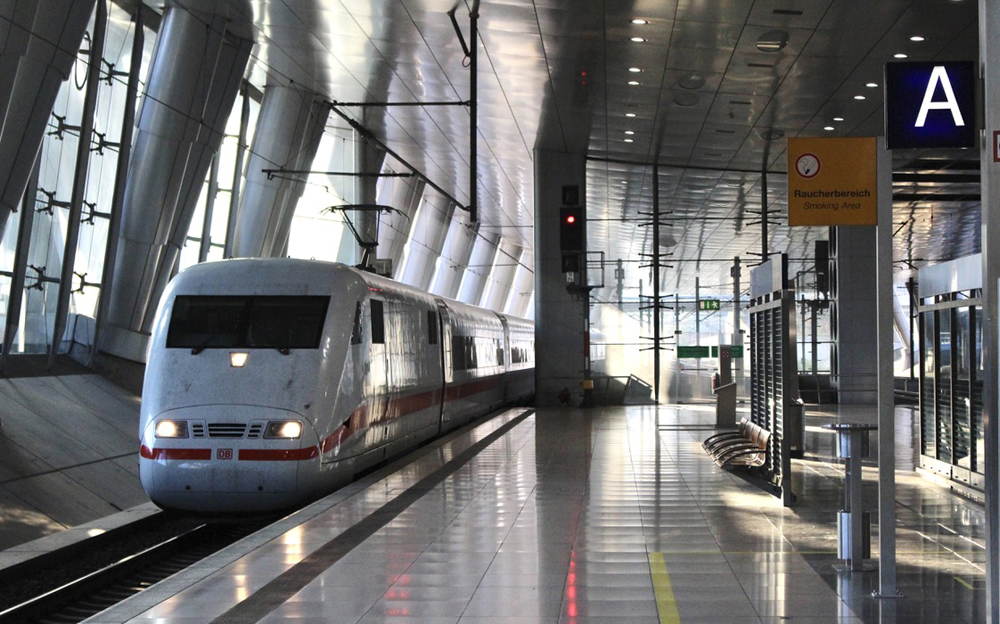
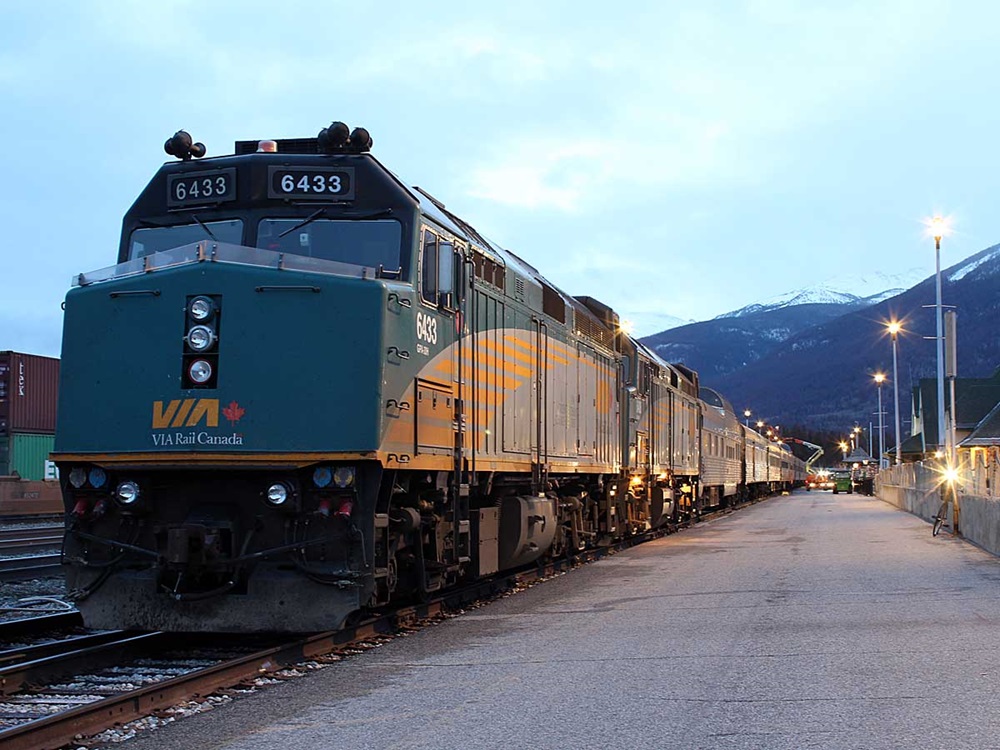




That is one of the most entertaining interviews I have seen. And more importantly one gets the feeling Mr Shaw is in some form an amazing salesman who brings you with him as he discusses his railroad and his promises. If his words come to fruition it will be amazing to see the results.
so when are you going to scrap PSR and start running shorter more frequent trains and make the customer important. that would be the right thing to do.
I’ve read and reread this interview and am scratching my head as what Mr. Shaw describes, specifically with regards to the issues involving the craft employees. Absolutely nothing has changed in the field when it comes to management dealing with employees. Recently one manager told the employees that THEY needed to get past the “adversarial relationship” that existed and do more sacrificing to get the company out of the hole (that they had created). Another manager wrote up 47 employees in 30 days for what he perceived as rules infractions. Reportedly, a superior gave him a tongue lashing but he is still about to receive a promotion and substantial pay raise for his service. These same managers have begun forcing craft employees to do other jobs once they have finished theirs without any additional compensation. (Craft employees are paid per job, known as trip rates, and while these additional tasks in the past required additional compensation, they have chosen to replace the NS agreement with the CN agreement absent the additional compensation the CN pays.) Working limits have been extended, again without additional compensation, and despite the FRA having qualification requirements
on mainline trackage, employees are ordered to circumvent those by running “at restricted speed”. The additional day off acquired in the recent contract is routinely being denied due to “manpower issues”. Past practice of paying availability bonuses to employees where GO Team members are being used has been suspended in the name of cost cutting. Employees are still operating in a culture of fear of retaliation should they stand up to out of control managers and the new hires are quitting at a rate of about 90%. Mr. Shaw has said a lot of words since he became CEO, but the truth is that those words have not resulted in any actions to improve the conditions of the job or culture of management.
Thank you for this interview. Mr. Shaw is the right person for a difficult task. I wish him and NS and NS employees every success. Better railroads make for a better country.
Doubling down on PSR! Bankruptcy will result.
Awesome interview Mr. Stephens. I always look forward to your writings. I also am very impressed with Alan Shaw. He seems to be very conscientious in leading a great Railroad.
Mr. Alan Shaw’s response to the questions asked of him was refreshing to hear. Now, keep learning and in direct contact with your employees and you will run a great railroad. What happened in that town should open many eyes in the media.
This reminded me of the great vision of a certain Mr. Claytor and the properly led Southern Railroad….Railway. It brought to mind BIG JOHN!
I agree wholeheartedly with Mr. Fine’s comments, a fantastic interview and a great article again. Keep it up Mr. Stephens. I am always looking forward to your articles, they are so relevant and informative. I am also very impressed with CEO Alan Shaw, from a great distance, but he seems to be the real deal. Hope it works well for him and NS.
A fantastic interview Mr. Stephens, better by far than anything in the Professional railroad press, and the normal Bullshit PR press releases. Now if the print edition of Trains can ramp up with it’s new leadership to a return to its former glory, that would be icing on the cake.